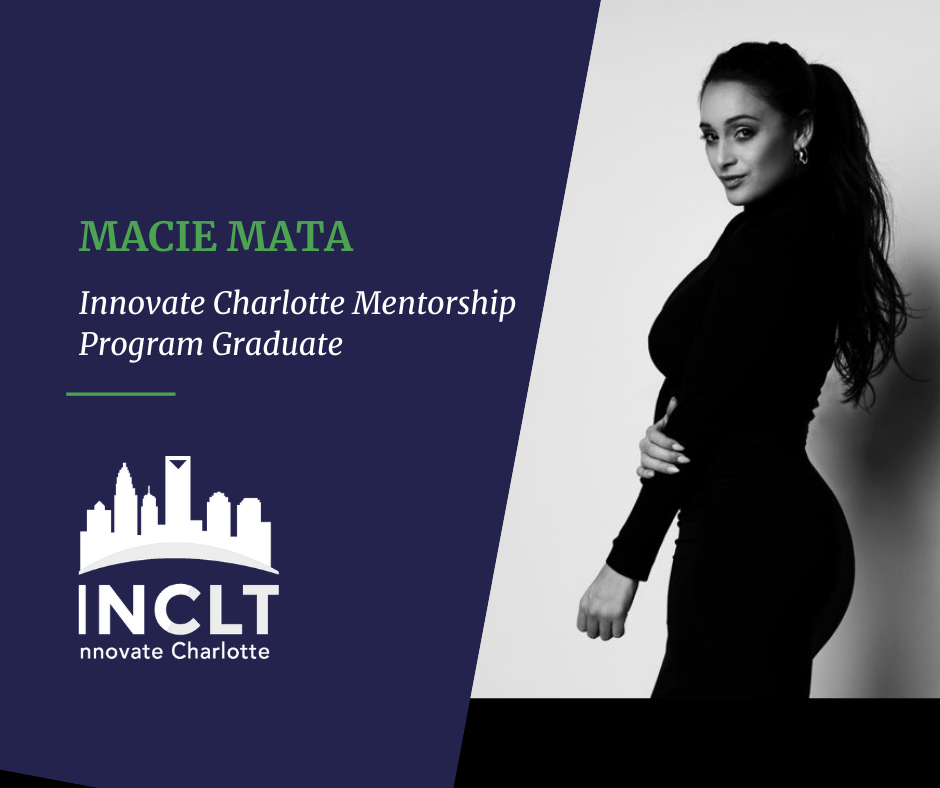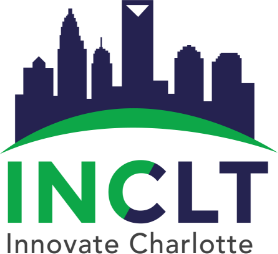Finding beauty in the pivot
In many ways, “pivot” has become the defining word of the pandemic.
We’ve had to pivot the way we parent, the way we work, the way we learn, the way we lead. While change has always been constant, it has never — at least in our lifetime — been so rapid and so intense.
But, while larger companies have struggled to embrace that change, entrepreneurs have been uniquely suited to the challenge. Pivoting is par for the course for the vast majority of startups. That doesn’t mean it’s easy. Ideas are like babies. When you have one, it can be hard to see its flaws. That’s why INCLT is beginning this series of conversations with local entrepreneurs to break down the process of changing your fundamental business model and the role mentorship can play in the process.

First on our list is Macie Mata, the former co-founder of MAZE Services and Curl Lounge. Mata joined the INCLT Venture Mentoring Service in the thick of building MAZE, a mobile beauty concept that brought hair stylists, manicurists and other beauty professionals straight to the client, whether they were at home or the office. It was born out of a very real problem Mata had encountered as her finance career took her across the country, forcing her to abandon relationships with professionals she liked and trusted. She and her co-founder, Samonica Ngo, had been building the platform and the business behind it. They had gone through what Mata jokingly calls a “dummy round” of fundraising (during which they raised nothing), and they realized it was time to come up for air — to get plugged into the Charlotte startup community, to get more educated on fundraising and to get help.
“We were right around beta phase when we decided to join INCLT. We had our heads down for so long building this technology and doing case studies and research, and it was time to resurface and look around,” Mata said. “We needed to dive right into this startup community and surround ourselves with people who challenge our thought processes. We had been so embedded in our business, we knew we needed someone from the outside looking in.”
Mata is one of those people who welcomes feedback. She craves it and credits it with helping her build a successful career in finance. But feedback on your business is different. It hits harder, and as a result, she describes her relationship with her group of INCLT mentors as “a love/hate relationship.” Her mentors asked tough questions that forced her to rethink aspects of her vision. More than once, she and Ngo would leave mentor meetings fired up and frustrated.
“But the majority of the time, our mentors were right. I might not have wanted to hear what they had to say, but I realized pretty quickly that it was something I needed to look into,” Mata recalled. “You should always want to have someone on the sidelines who you can go to with questions. I believe so much in the mentorship program because of all the things they did to challenge us.”
And it was working. Mata and Ngo went in pursuit of a seed round and soon found themselves in negotiations to raise $350,000.
“We were ahead of schedule, so we decided to hold off on the funds. For one, if we were to hit these awesome milestones, we knew it would give us more negotiating power in a few months. Two, we were informed that we were breaking the law,” she said.
In North Carolina, each cosmetology license must be tagged to a salon location so the state Board of Cosmetic Art Examiners can ensure all necessary procedures are followed. The license cannot be mobilized, meaning that hair stylists, manicurists and other beauty professionals can’t take their services on the road, unless it’s to serve someone with a special need. Mata can laugh about it now, but at the time, that realization posed a very real threat to the business she wanted to scale, fast. Overnight, she went from founder and CEO to lobbyist, fighting in Raleigh to change the law that stood in the way of MAZE’s success.
“This is an industry that needs to change and needs to be disrupted, but the process to get a bill passed is pretty brutal. At that point, the burnout was different for me. Every entrepreneur experiences burnout, but it was draining my passion,” Mata said. “I’m not a lobbyist. I wanted to build this company and scale it. This put my scaling model from five years to 10, and it was no longer intriguing to my team or my investors.”
Mata and Ngo started hashing through options for the business.
“Our mentors were a huge part of this. We went through multiple ways to pivot our company, to see if it was something to pivot into something else in the beauty industry or a completely different vertical — and then what is the right dollar amount for us to walk away,” Mata recalled.
In the end, they decided to shutter MAZE and sell the technology they had built to a couple in Canada, where it’s being used in a completely different industry.
“In those moments, we were moving so quickly that my emotions were removed,” Mata said. “We voted on it, and we felt good about it. A few months after it was over is when I started having this extreme identity crisis. This was my identity for the past two and a half years. What is next?”
For Mata, it was a new business — a salon concept called Curl Lounge focused specifically for women with curly hair. The idea was to franchise the business from the start, allowing it to scale with speed. Mata raised $350,000 within the first 30 days. She pitched it to her mentors, who agreed to help her through the process. She was in negotiations on a lease for her debut space.
Then, the pandemic hit.
“That’s where I’m not alone in saying things got a little weird,” she said. “But in the end, it was almost a blessing. I was going through some initial growing pains of trying to find the right business partner or co-founder, and I had some really high expectations. Also, this was a very specific target market. It was a curly-hair salon, and I don’t have curly hair. As much as I believed in the mission and that this demographic deserved this type of diversity in the space, it would be 10 times harder for me to represent that brand.”
Before anything was signed, Mata decided to give the money she had raised back to her investor. Once again, she was an entrepreneur without a startup. But she didn’t stop working.
Mata believes there are many more businesses in her future. It’s part of her entrepreneurial mindset and drive. She thinks in business ideas, beyond the beauty space, and it began almost immediately after she shuttered the salon concept.
For one, she started working with other founders who were involved in the fundraising process, helping with due diligence and investor connections. In the past year, she’s helped startups raise $5.5 million.
She has also ventured out into the real estate space. Mata and her new business partner are building 14 townhomes that will become workforce housing. She’s also interested in affordable housing, and she’s contemplating the creation of a real estate fund in the Queen City that will focus on both.
“The community impact is really what we get the most excited about. Being able to provide this type of product and do it well is what we want to become great at,” Mata said.
She left the INCLT mentorship program after the salon concept fell through — the program requires founders to have a business concept in progress — but she came away with an ongoing mentor relationship, ironically enough with one of the mentors who challenged her the most.
“He became an individual mentor to me, and he’s brought extreme value because I’m all over the place,” Mata said. “He’s still challenging me to see what’s most important to me, and when I figure out what that is, we can dig deep on these specific projects.”
Now, she’s paying that forward.
“I am now mentoring two different people a quarter,” Mata said. “I let them know, ‘You have three months. What are your goals, and what do you want to learn?’” That commitment keeps the cycle going, and it helps keep Charlotte’s startup community growing, in powerful ways. Olga Muller, director of operations for local software development company Kepler Team, has seen that firsthand, both as part of a startup and as a member of the broader entrepreneurial ecosystem in Charlotte. “No business or founder can succeed in isolation. Success requires a collaborative approach and help from those who have been there and done that when it comes starting and building companies.”
